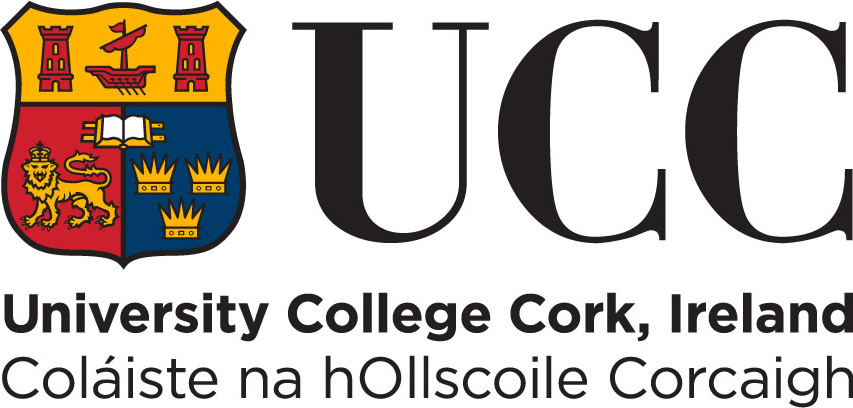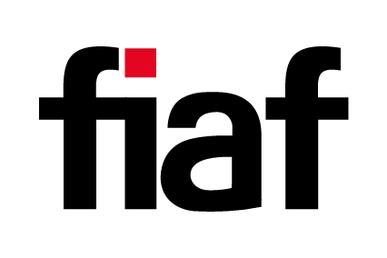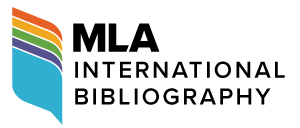Around the World in 14 Films: The Berlin Festival of Festivals
Claudia Kotte
There is no shortage of film festivals in Berlin. From the Arab Film Festival, Alfilm to filmPOLSKA and the Jewish Film Festival to the ZEBRA poetry film festival, the city hosts more than eighty film festivals every year—not to forget the Berlinale, a cinematic marathon with almost four hundred films in ten days. While that choice may be overwhelming for most, Berlin has a smaller and lesser known festival that is possibly even more worth attending: a global cinematic trip called Around the World in 14 Films. Established in 2006, the festival aims to wrap up the year’s cinematic output with a selection of fourteen films from fourteen different countries. The festival’s 13th edition, held between 22 November and 1 December 2018, ended with a record number of six thousand visitors.
For the first time in its history, the festival’s title proved slightly misleading, for in addition to the fourteen films selected from international festivals, the organisers presented a German film not yet released in Germany (A Winter’s Tale [Wintermärchen], Jan Bonny, 2018), a Sundance night featuring The Tale (Jennifer Fox, 2018) and Wildlife (Paul Dano, 2018), homages to Jean-Luc Godard and Yorgos Lanthimos as well as four films from the Berlinale World Cinema Fund. Seven out of the fourteen plus thirteen films were made by women.
All of them stood out at the festivals in Cannes, Venice, Locarno, Sundance and Toronto. Geographically, the 2018 selection ranged from Canada and China to Columbia, France, Hungary, Iran, Korea, Lebanon, Mexico, Morocco, Singapore, Turkey, the UK and Vietnam. The festival opened with Cold War (Zimna wojna, Paweł Pawlikowski, 2018), winner of the best director award at Cannes. With its sweeping narrative and story of thwarted love (the action moves from rural Poland in 1949 to East Berlin in 1952 to Paris in 1954 and Split in 1955 back to Poland in 1959) it was an appropriate opening to a festival that aims to take its audience on a trip around the world to reflect the diversity of world cinema. With its score of folk songs, jazzy ballads and rock and roll, it struck a chord with audiences and critics alike.
The selection of films largely fell into two categories: films that will most likely not find German distribution and films by well-known directors, whose German release was impending. The latter category included Burning (Beoning, Lee Chang-Dong, 2018), The Wild Pear Tree (Ahlat Ağacı, Nuri Bilge Ceylan, 2018), Shoplifters (Manbiki Kazoku, Hirokazu Kore-eda, 2018), 3 Faces (Se rokh, Jafar Panahi, 2018), The Favourite (Yorgos Lanthimos, 2018), High Life (Claire Denis, 2018), Capernaum (Capharnaüm, Nadine Labaki, 2018), and Ash is Purest White (Jiang hu er nü, Jia Zhangke, 2018). All of them are likely to top the lists of the “ten best films made in 2018”. Seen in compilation, it was interesting to observe various common threads and motifs. Literature indeed played a major role in several of them, providing not only the plot for Lee Chang-Dong’s film (which is based on a short story by Haruki Murakami), but also crystallising the central conflict in Nuri Bilge Ceylan’s film. As the young protagonist of The Wild Pear Tree tries to distance himself from his family and upbringing, he repeatedly runs up against social constraints and ends up being dragged into the same destiny as his hated father. Burning’s protagonist Jongsu, also an aspiring fiction writer, is similarly ridiculed by his father, yet Lee Chang-Dong opts for a more enigmatic mode of representation, leaving open whether the events on screen are the result of the protagonist’s imagination or have a factual basis in reality. A makeshift family took centre stage in the 2018 Winner of Cannes’ Palme d’Or, Shoplifters, yet one that was more a community of convenience, challenging conventional notions of kinship as well as property. Kore-eda’s poetic and benevolent portrayal of family life contrasted with the pitiless neorealist view of life—and death—in the slums of Beirut, as seen in Nadine Labaki’s film Capernaum, winner of the Cannes Prix du Jury.
More hidden gems were the films from Canada, Mexico, Morocco, the UK and Vietnam, which are unlikely to be screened outside the festival circuit. Philippe Lesage’s Genesis (2018) recounts three stories of first love, oscillating between exuberance, disappointment, shame, passion and abuse. With an electrifying soundtrack and fresh and natural performances by Noée Abita and Théodore Pellerin, it delivered an intensely vivid, almost timeless picture of adolescent love. Another film that may never be screened again in Germany was Long Day’s Journey into Night (Di qiu zui hou de ye wan, Bi Gan, 2018). Reminiscent of the director’s previous film Kaili Blues (Lu bian ye can, 2015) and the novels of Patrick Modiano with their recollection of missing people, the film depicts the homecoming of Luo Hongwu in search of the woman he loved. For all its stylistic ambitions and technological efforts (its second part is shot in 3D and in a single sequence), the film unfortunately seemed to lack substance. In contrast, the finely observed visual details and bizarre rituals in Richard Billingham’s debut feature film Ray & Liz (2018)—based on Billingham’s lived experience and photos made in the 1990s—made it a powerful portrait of a family under the influence of alcohol.
Thanks to sponsors such as the culture channel ARTE and above all the German Foreign Office, the festival not only organises screenings, but also welcomes German actors, directors and journalists who introduce the films with a personal statement; moreover, it invites directors to discuss their films with the audience. For the first time in its history, the festival also included a panel discussion on women and film, which will become a permanent part of the festival. Vietnamese filmmaker Ash Mayfair commented on the strong female characters in her film The Third Wife (Ash Mayfair, 2018), which was inspired by her grandmother’s life. Colombian director Cristina Gallego, codirector of Birds of Passage (Pájaros de verano, Cristina Gallego and Ciro Guerra, 2018), spoke about the research for her spiritual gangster film, in which two power regimes—an indigenous matriarchal clan and a new capitalist class profiting from the marihuana boom of the 1970s—enter into conflict. (The film opened Cannes’ “Quinzaine des Réalisateurs” in 2018.) Céline Perréard, editor of the Moroccan film Sofia (Meryem Benm’Barek-Aloïsi, 2018), which won the best screenplay award in the “Un certain regard” section in Cannes, emphasised that her film was less about teenage pregnancy and more about the clash of classes in contemporary Morocco. The screenplay was indeed rewritten during filming and again during editing to highlight tensions between male and female representatives of the upper, middle and lower classes. With its rigidly framed images and frontal shots, the film effectively communicated the strict rules of society and the inescapability from social constraints.
Moreover, the festival directors Bernhard Karl and Susanne Bieger teamed up with the Berlinale World Cinema Fund to spotlight five feature-length films created with support of the World Cinema Fund. The WCF fosters cultural diversity in German cinemas while developing and supporting cinema in regions with a weak film infrastructure. As such, it provides additional funding for films that stand out for their unconventional aesthetic approach, tell powerful stories and transmit an authentic image of their cultural roots. Since its founding in October 2004, the WCF has supported a total of 209 projects out of 3,587 submissions. To showcase the results of the fund, Around the World in 14 Films presented WCF-funded films from Argentina, Kenya, Sudan and Syria. One of them was The Roundup (aKasha, Hajooj Kuka, 2018), an anarchical comedy exploring life and love in the rebel-held areas of Sudan. Another was the colourful and provocative film Rafiki (Wanuri Kahiu, 2018), a coming-of-age as well as a coming-out story in contemporary Kenya, whose colourful images provided the picture for the 2018 festival poster. (Rafiki’s director has cofounded an artistic movement called “Afrobubblegum” that supports “fierce and frivolous” African art.) Exploding with music and movement, Rafiki (the Suaheli word for friend—and a codeword for gay partner) couldn’t be further away from the clichés typically associated with Africa; at the same time, it makes no secret of the deeply homophobic atmosphere in Kenya. Unsurprisingly, the film was immediately banned in its country of origin for “promoting lesbianism”, yet it was the first Kenyan film to be shown in Cannes.
On a less jubilant note, Around the World in 14 Films included a panel discussion on German film in the age of streaming services. Even though you wouldn’t know it from the embellished press releases of the German film funding agency, 2018 was an annus horribilis for German cinema: the number of tickets sold declined by sixteen per cent, the average cinema-goer is ageing dramatically; the best-selling German films were of poor quality and no German film was nominated for the European Film Award. At the same time, streaming services are booming, luring renowned filmmakers and aspiring actors away from independent film productions to work for Netflix & Co.—the success of Roma (Alfonso Cuarón, 2018), a Netflix production which won the Golden Lion at the Venice film festival, proved a case in point. The outlook seems bleak, yet Around the World in 14 Films also demonstrated that the decline of cinematic culture is not inevitable. With an occupancy rate of eighty per cent and 6,000 visitors (compared to 4,500 in 2017), the independent film festival celebrated the biggest rush of visitors since its founding in 2006. A carefully selected, high-quality line-up of world cinema, it seems to confirm, is very well capable of attracting a large public.
References
1. Ash is Purest White [Jiang hu er nü]. Directed by Jia Zhangke, Shanghai Film Group Corporation, Xstream Pictures, Huanxi Media G., MK2 Productions, 2018.
2. Birds of Passage [Pájaros de verano]. Directed by Cristina Gallego and Ciro Guerra, Ciudad Lunar Producciones, Blond Indian Films, Pimienta, Snowglobe, Films Boutique, 2018.
3. Burning [Beoning]. Directed by Lee Chang-dong, Pinehousefilm, 2018.
4. Capernaum [Capharnaüm]. Directed by Nadine Labaki, Mooz Films, 2018.
5. Cold War [Zimna wojna]. Directed by Paweł Pawlikowski, Opus Film/Apocalypso Pictures/MK2 Productions, 2018.
6. The Favourite. Directed by Yorgos Lanthimos, Fox Searchlight, Film4, Waypoint Entertainment, 2018.
7. Genesis. Directed by Philippe Lesage, L’unité centrale, 2018.
8. High Life. Directed by Claire Denis, Pandora Filmproduktion, Alcatraz Films, The Apocalypse Films Company, Madants, 2018.
9. Kaili Blues [Lu bian ye can]. Directed by Bi Gan, China Film (Shanghai) International Media Co., 2015.
1o. Long Day’s Journey into Night [Di qiu zui hou de ye wan]. Directed by Bi Gan, Zhejiang Huace Film & TV, Danmai Films (Shanghai), Huace Pictures (Tianjin), 2018.
11. Rafiki. Directed by Wanuri Kahiu, Big World Cinema, MPM Film, Rinkel Film, Afrobubblegum, Ape & Bjorn, Razor Film, 2018.
12. Ray & Liz. Directed by Richard Billingham, Primitive Film, 2018.
13. Roma. Directed by Alfonso Cuarón, Espectáculos Fílmicos El Coyúl, Pimienta Films, Participant Media, Esperanto Filmoj, 2018.
14. The Roundup [aKasha]. Directed by Hajooj Kuka, Refugee Club, Big World Cinema, Komplizen Film, 2018.
15. Shoplifters [Manbiki Kazoku]. Directed by Hirokazu Kore-eda, Aoi Pro. Inc., 2018.
16. Sofia. Directed by Meryem Benm’Barek-Aloïsi, Curiosa Films, 2018.
17. The Tale. Directed by Jennifer Fox, A Luminous Mind Productions, One Two Films, Untitled Entertainment, Blackbird Films, 2018.
18. The Third Wife. Directed by Ash Mayfair, An Nam Productions, Three Colors Productions, Mayfair Pictures, 2018.
19. 3 Faces [Se rokh]. Directed by Jafar Panahi, Jafar Panahi Filmproductions, 2018.
2o. Wildlife. Directed by Paul Dano, June Pictures, Nine Stories Productions, Sight Unsee Pictures, 2018.
21. The Wild Pear Tree [Ahlat Ağacı]. Directed by Nuri Bilge Ceylan, Zeyno Film, Detailfilm, Film I Väst, Memento Films Production, 2018.
22. A Winter’s Tale [Wintermärchen]. Directed by Jan Bonny, Heimatfilm, 2018.
Suggested Citation
Kotte, Claudia. “Around the World in 14 Films: The Berlin Festival of Festivals.” Report. Alphaville: Journal of Film and Screen Media, no. 17, 2019, pp. 270–274. https://doi.org/10.33178/alpha.17.27.
Claudia Kotte is an independent scholar living in Berlin. She holds a PhD in Comparative Literature from the Université de Montréal in Canada and has coauthored the first monograph on Canadian film in Germany. She publishes on Canadian film and world cinema.









